 Zo'n week voor de Australische overheid formeel en met veel tam-tam en felle debatten met de belastingbetaler haar excuus aanbiedt voor de historische criminele
Zo'n week voor de Australische overheid formeel en met veel tam-tam en felle debatten met de belastingbetaler haar excuus aanbiedt voor de historische criminele  realiteit ten opzichte van de aboriginal kinderen, de stolen generations: Sorry!
realiteit ten opzichte van de aboriginal kinderen, de stolen generations: Sorry!Vragen nu van een N. Ierse priester over die mestvaalt van de Rooms Katholieke Kerk
Want ook de Britse regering heeft inmiddels haar exuses al moet maken naar Australiers.
Anderen, vroegere Britse kinderen.
Boefjes, wezen, tot wees verklaarde kinderen van ongehuwde moeders, zorgkinderen.
 In eigen land ongewenst, ze kwamen slecht uit: in Australie hard nodig.
In eigen land ongewenst, ze kwamen slecht uit: in Australie hard nodig.Pragmatisch opgelost in koehandel.
Export kinderen.
Bestolen en gestolen kinderen.
Terwijl tegelijkertijd na de regeringsexcuses en de regelingen in Canada daar de eisen naar informatie over de begraafplaatsen en de lijken die verdwenen steeds duidelijker en harder worden.
Ook da's voor Ierland niet nieuw, de onderzoeken startte mede door verdoezelde anonieme graven uit wasserijen. Magdalena's, die Conell zo slecht uitkwamen.
Zorg-ontvangers, slachtoffers en hun kinderen die hun mond begonnen open te doen.
 Geschiedenis schreven in Ierse revolutie.
Geschiedenis schreven in Ierse revolutie. 
En kardinalen. Die het nog steeds niet door wensen te hebben.
En die paus?
Sorry!
Alsof dat nog mogelijk is.
Het kost slechts mensenlevens. En geld.
En dus nog meer mensenlevens.
It's hard to look away from the spectacle of two bishops head-butting one another, metaphorically speaking, but we should.
In the Dublin High Court on Monday, Cardinal Desmond Connell sought an order preventing the Archdiocese Commission of Investigation from examining a dossier of more than 5,000 documents relating to alleged instances of child abuse by clergy between 1975 and 2004.
The case was adjourned for a week.
The documents are already in possession of the commission, handed over last December by Dr Connell's successor, Archbishop Diarmuid Martin. The question is whether the commission will be able to rely on the documents in drawing its conclusions.
The Irish Government set up the commission in 2006 after complaints came to light against more than 100 priests.
The commission is not investigating the complaints, but examining the way a sample of 46 complaints was handled when they came to the notice of the diocesan authorities.
Dr Connell was Archbishop of Dublin from 1988 to 2004.
The dossier includes letters between Dr Connell and legal advisers concerning insurance cover and legal liability in respect of a number of individual cases.
Dr Connell claims that these are covered by lawyer-client confidentiality.The commission will argue that the client was the archdiocese, not Dr Connell personally, and that Dr Martin was therefore within his rights, and acted properly, in handing the documents over.
Deirdre Fitzpatrick of One in Four, a support group for victims of sexual abuse, posed the question on many minds: "What exactly is the Cardinal determined to hide?"
The case has a number of sharp angles from the media's point of view.
The victims' search for truth and solace from the Church which betrayed them. The clash between Church - or one element of the Church - and State.
Most of all, the paradigm picture of the traditionalist prelate in pomp and purple at odds with the modern administrator in neat semi-civvies.
But the question looming over all others concerns, not the conflicting
mind-sets of the two prelates, but how it can be that, after
two decades of revelation about the treatment of children in the care of the
Catholic Church, there is still need for complex and expensive legal action to
drag evidence into the light?Speaking in Dublin on Monday night, the Archbishop of Armagh, Cardinal Sean Brady, said: "Truth is not served by polemics on any side."
He added that he "regretted all distractions in the pursuit of truth where clerical child sex abuse was concerned."
It might be wondered why, if that is his approach, he hasn't urged dioceses across Ireland to throw open their archives to State agencies and
victims' representatives, obviating altogether the need for distractions such as commissions and court action.
Since he is the Primate of All Ireland, such a call would apply to dioceses in the North as well as the South.
Why is it, too, that the question is never posed of a State-funded commission to investigate allegations of clerical child sex abuse on this side of the border?
There is no reason to suppose that the incidence here has been significantly different from down South.
Here's a few questions from the diocese of Derry which it might be appropriate for a commission to probe, in the absence of voluntary disclosure.
Which Church officials organised, with the assent of which State agencies, the export in the 1940s, '50s and '60s of scores of children placed in the care of the Church in the Derry diocese to the other side of the world?
Upon arrival in Australia, many of the snatched children were given new names and told they had no families. Some were brutalised and sexually exploited in 'homes' and work-camps run by the mainly-Irish Christian Brothers.
A few were worked literally to death.
How were these children selected and processed?
What passports or papers did they travel on?
What was the Stormont Department of Education's understanding of the reason for the disappearance of those who had been attending school?
Who were the Australian immigration authorities given to believe these children were?Perhaps the unionist regime of the time had so little problem with small
Taigs disappearing that it just paid no attention to it.
In Australia today, there are people with children and grandchildren
spiritually desolate from not knowing from where and whom they came.
The information they crave for peace of mind and soul is, must be, held in diocesan archives. Will Dr Brady call for these archives to be opened up and light let in?
The court clash between Drs Connell and Martin will be fascinating.
But the profound conflict is not between the attitudes of past and present archbishops, but, still, between the need for truth and the determination
of powerful interests to keep the truth hidden.


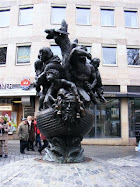
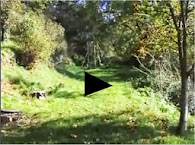
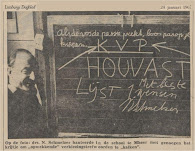

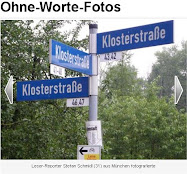
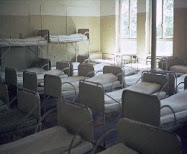





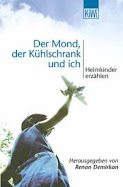
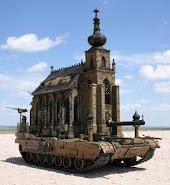
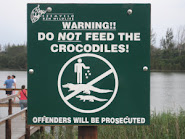

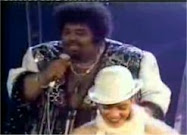
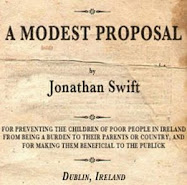


Geen opmerkingen:
Een reactie posten